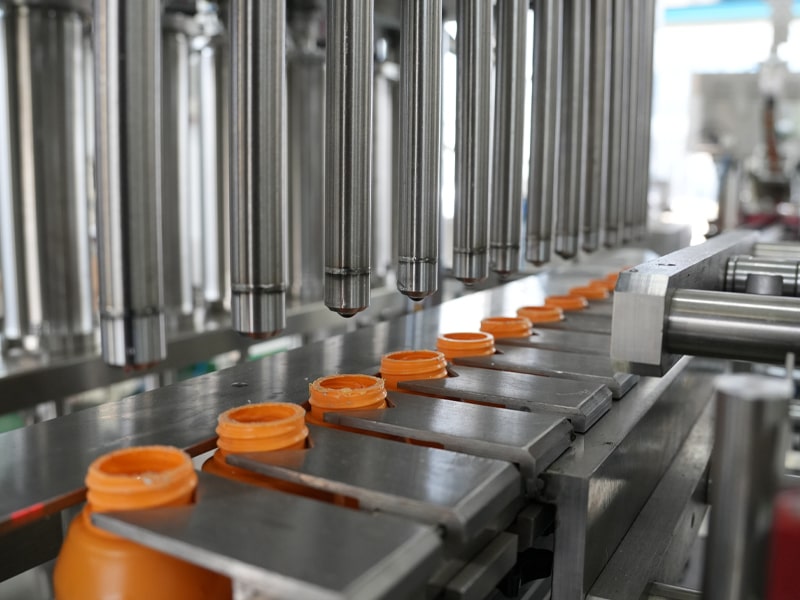The liquid packaging industry, responsible for bottling everything from beverages and pharmaceuticals to detergents and cosmetics, has undergone a paradigm shift in recent years. Driven by robotics, artificial intelligence (AI), and the Industrial Internet of Things (IIoT), automation is redefining how liquids are packaged, delivering unprecedented efficiency, precision, and sustainability. This transformation is not merely about replacing manual labor with machines; it represents a fundamental reimagining of production workflows, quality control, and supply chain integration.

Enhanced Speed and Precision
Traditional liquid packaging lines often relied on human intervention for tasks like filling, capping, labeling, and quality inspections. These processes were prone to human error, inconsistent output, and speed limitations. Modern automated systems, equipped with robotic arms, vision sensors, and programmable logic controllers (PLCs), now perform these tasks with millimeter-level accuracy. For example, high-speed rotary fillers can process thousands of bottles per hour while maintaining fill-level consistency within a 0.5% tolerance. Similarly, AI-powered vision systems detect microscopic defects—such as cracks, leaks, or misaligned labels—in real time, reducing waste and ensuring compliance with stringent regulatory standards.
Flexibility and Customization
Consumer demand for personalized products—such as limited-edition beverages or small-batch skincare lines—has made adaptability a critical requirement. Automation enables packaging lines to reconfigure rapidly to accommodate varying bottle sizes, shapes, and materials. Modular robotic systems, integrated with cloud-based software, allow manufacturers to switch between product formats in minutes rather than hours. This flexibility is particularly valuable in industries like pharmaceuticals, where packaging lines must handle everything from single-dose vials to bulk chemical containers without cross-contamination risks.
Sustainability Gains
Automation directly contributes to environmental goals by optimizing resource usage. Smart filling systems minimize liquid spillage, while predictive maintenance algorithms reduce energy consumption by ensuring equipment operates at peak efficiency. Advanced sorting systems separate recyclable materials with 99% accuracy, supporting circular economy initiatives. Additionally, automated packaging lines often use lighter, eco-friendlier materials—such as biodegradable plastics or thinner glass—without compromising durability, as precise handling reduces the risk of damage during transit.
Data-Driven Decision-Making
The integration of IIoT sensors transforms packaging machinery into data-generating assets. Real-time monitoring of parameters like temperature, pressure, and viscosity enables proactive adjustments to preserve product integrity. For instance, in dairy processing, automated systems adjust fill levels based on viscosity changes caused by temperature fluctuations. Data analytics platforms also identify bottlenecks, predict equipment failures, and optimize inventory management. This connectivity extends beyond the factory floor, enabling seamless coordination with suppliers and distributors to shorten lead times and prevent stockouts.
Challenges and Workforce Evolution
While automation offers significant benefits, its adoption presents challenges. High upfront costs and the complexity of integrating legacy systems with new technologies remain barriers for small and medium-sized enterprises (SMEs). Moreover, the workforce must evolve alongside these changes. Traditional machine operators are transitioning into roles requiring expertise in robotics programming, data analysis, and system maintenance. Companies are investing in upskilling programs to bridge this gap, fostering a new generation of tech-savvy professionals.
The Future of Liquid Packaging
Emerging technologies like collaborative robots (cobots), blockchain for traceability, and machine learning-driven predictive quality control promise to deepen automation’s impact. Cobots will safely work alongside humans to handle delicate tasks like assembling luxury perfume packaging, while blockchain ensures transparency in sourcing and sustainability claims.
Automation is not only streamlining liquid packaging operations but also redefining the industry’s capabilities. By merging speed, precision, and intelligence, automated systems empower manufacturers to meet escalating consumer expectations, regulatory demands, and environmental responsibilities. As technology continues to advance, the liquid packaging sector will remain at the forefront of innovation, proving that even the most routine processes can be transformed into pillars of modern industrial excellence.






Comments